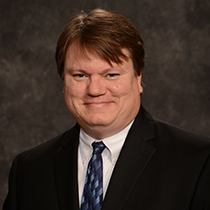Recent Shock-Tube Chemical Kinetics Experiments for Ammonia and Hydrocarbon Combustion
| Event Date: | February 16, 2022 |
|---|---|
| Priority: | No |
| College Calendar: | Show |
February 16, 2022
Lecture: 1:30 PM
Chaffee Auditorium - Zucrow Laboratories
Virtual: tinyurl.com/Petersen-Seminar
Q & A and Social: 2:30 PM
Chaffee Meeting Room - Zucrow Laboratories
Abstract: Over the past few years, the Petersen Research Group has been active in the study of combustion chemistry using a combination of flame and shock-tube experiments. Recent studies have focused on the chemical kinetics of ammonia and on the oxidation of hydrocarbons. Over the past decade, research activity on NH3 combustion has boomed, due to the potential of NH3 as a hydrogen carrier and as a fuel itself. Nonetheless, we have shown that there is still significant variation among the predictions of modem chemical kinetics mechanisms over the range of available data and target conditions. We have developed a laser absorption diagnostic for detecting NH3 which is used to measure ammonia concentration time histories in a shock tube and also to accurately measure the amount of NH3 present initially in a given experiment. Recent data have been used to produce an updated kinetics mechanism for ammonia pyrolysis. Laser absorption measurements of other key combustion species such as CO and H2O have also been used in shock-tube experiments in collaboration with C. K. Westbrook to better understand the oxidation of the pentene isomers. Tue high-temperature shock-tube data have led to the first comprehensive study of all 5 isomers and a corresponding chemical kinetics mechanism that is able to model the effect of C=C double bond location on the relative reactivity of the isomers. A brief ovenoew of the TEES Turbomachinery Laboratory is also provided.
Biography: Dr. Petersen is presently a Professor and holder of the Nelson-Jackson Chair in the J. Mike Walker '66 Department of Mechanical Engineering at Texas A&M University (TAMU). He is currently the Director of the TEES Turbomachinery Laboratory. He received his Ph.D. from Stanford University (1998), his M.S. from the University of Florida (1990), and his B.S. from the University of Central Florida (1988), all in Mechanical Engineering. After earning his MS. degree, he worked for three years at Pratt & Whitney in West Palm Beach, Florida (1990-'93). Dr. Petersen was a staff scientist at The Aerospace Corporation from 1997 to 2001. While at Aerospace, he was also an instructor in the Mechanical and Aerospaoe Engineering department at the University of California, Irvine. Dr. Petersen has been at TAMU since January, 2008. Prior to his current position at TAMU, Dr. Petersen was an Assistant and then Associate Professor in the Mechanical, Materials and Aerospace Engineering department at the University of Central Florida (2001-07). His research has been in the fields of gas dynamics; propulsion; combustion; sbock wave physics and chemistry; chemical kinetics; optical diagnostics and spectroscopy; combustion instability; and rocket combustion. He has authored over 580 papers in these areas, including 186 archival journal papers. He is a recipient of the NSF CAREER Award in 2006 and has received several awards for teaching at both UCF and TAMU. Dr. Petersen has advised 20 Ph.D. and 59 M.S. degrees. His research team currently is comprised of 17 people, including research professors, postdocs, and graduate and undergraduate students. He is a fellow of ASME and the Combustion Institute, and he is an Associate Fellow of AIAA.

